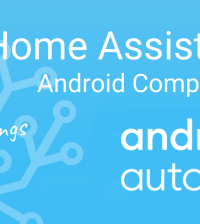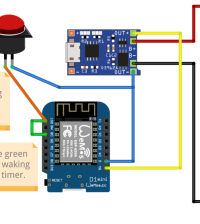- makeITcircular 2024 content launched – Part of Maker Faire Rome 2024Posted 2 weeks ago
- Application For Maker Faire Rome 2024: Deadline June 20thPosted 2 months ago
- Building a 3D Digital Clock with ArduinoPosted 7 months ago
- Creating a controller for Minecraft with realistic body movements using ArduinoPosted 7 months ago
- Snowflake with ArduinoPosted 8 months ago
- Holographic Christmas TreePosted 8 months ago
- Segstick: Build Your Own Self-Balancing Vehicle in Just 2 Days with ArduinoPosted 8 months ago
- ZSWatch: An Open-Source Smartwatch Project Based on the Zephyr Operating SystemPosted 9 months ago
- What is IoT and which devices to usePosted 9 months ago
- Maker Faire Rome Unveils Thrilling “Padel Smash Future” Pavilion for Sports EnthusiastsPosted 10 months ago
Google Plans: AI on Raspberry Pi
Google is intending to expand the dev tools available to makers using the Raspberry Pi microprocessor to power their projects this year — potentially offering software tools for face- and emotion-recognition, speech-to-text translation, natural language processing, sentiment analysis, predictive analytics and more.
The company is currently running a survey for Pi makers asking about the sorts of tools they would like it to develop. You can access the survey via the Raspberry Pi Foundation’s website.
Tech areas that can be selected during the survey include home automation, drones, IoT, robotics, 3D printing, wearables and machine learning.
“For me, the big opportunities are around deep learning and AI. Google are very strong in this area, particularly after the DeepMind acquisition, and there are obvious benefits to being able to connect their services to the real world using Raspberry Pi. It will be interesting to see the outcome of the survey, and what they choose to develop in response.” – Pi co-founder Eben Upton says.
Google has always shown interest in the Raspberry Pi. In 2013, it gifted $1 million worth of microprocessors to 15,000 U.K. schoolkids. It has also developed an open source tools for turning Raspberry Pi into a web server.
The Android Things IoT platforms also include support for the Pi 3, the 3rd-gen Raspberry Pi. And Google’s Android Things IoT platform includes support for the Pi 3, the current most powerful Pi.
The company does not have any specific details to share regarding its plans for Pi dev tools at this point, but stay tuned for more this year!!















